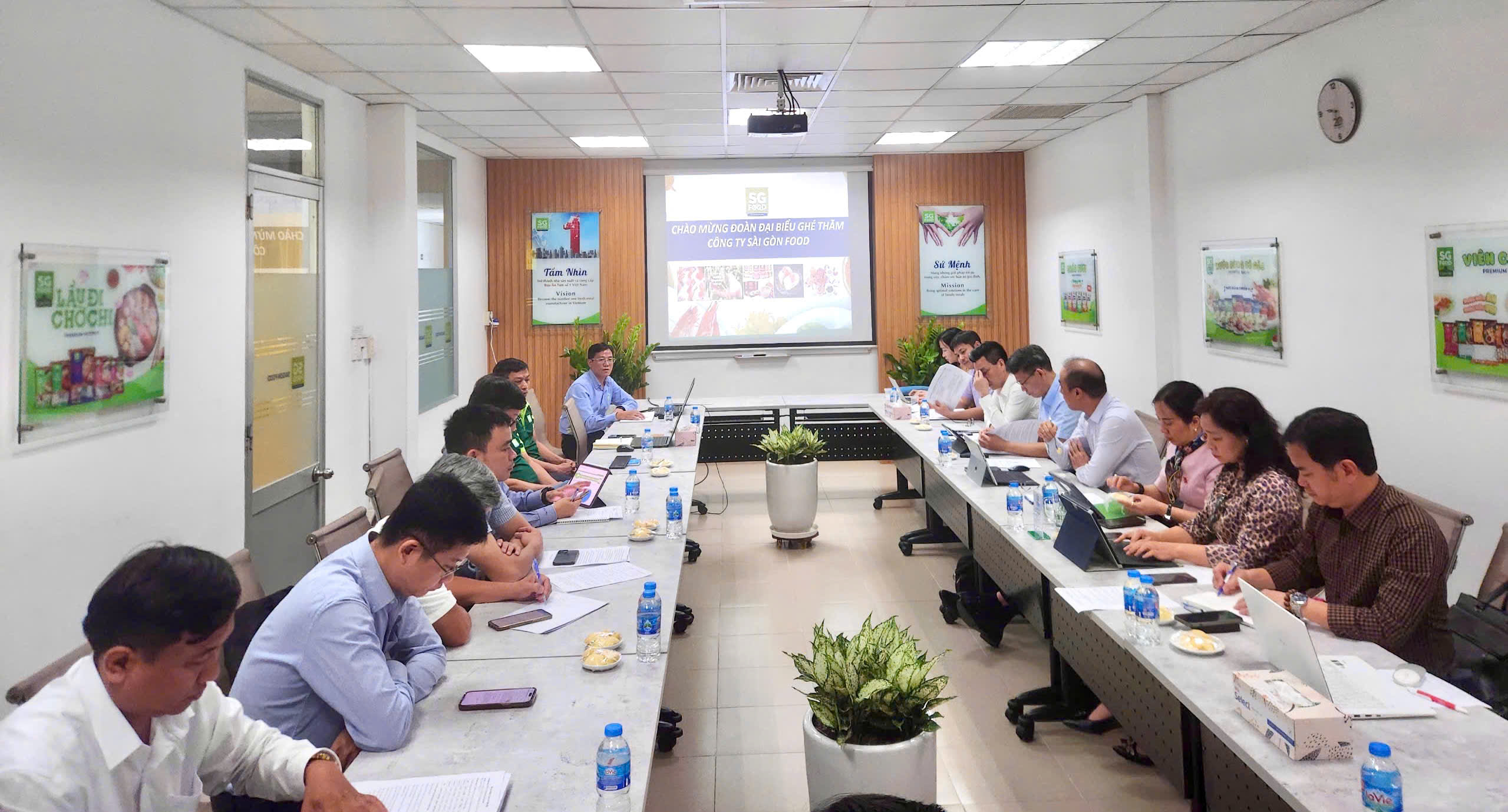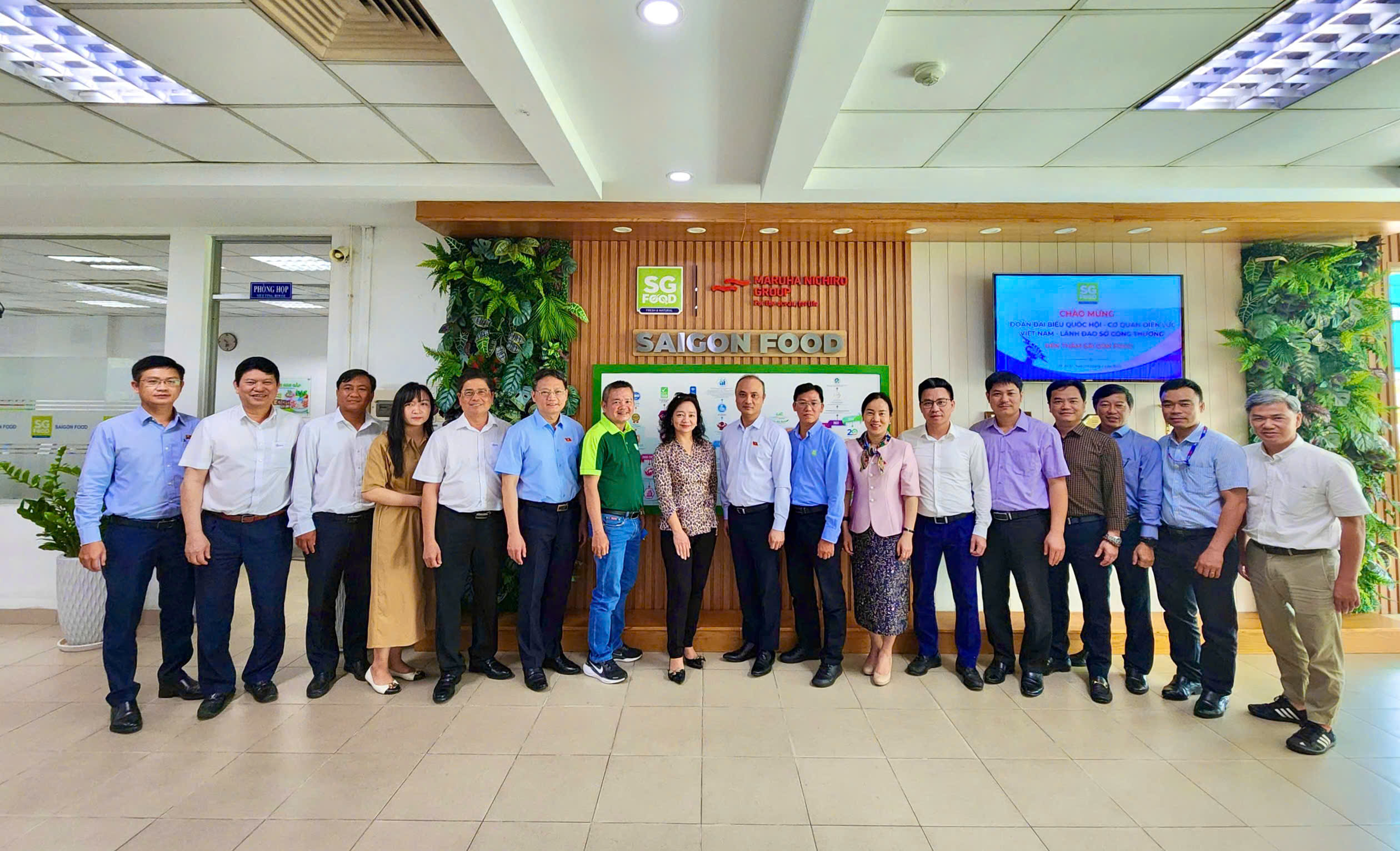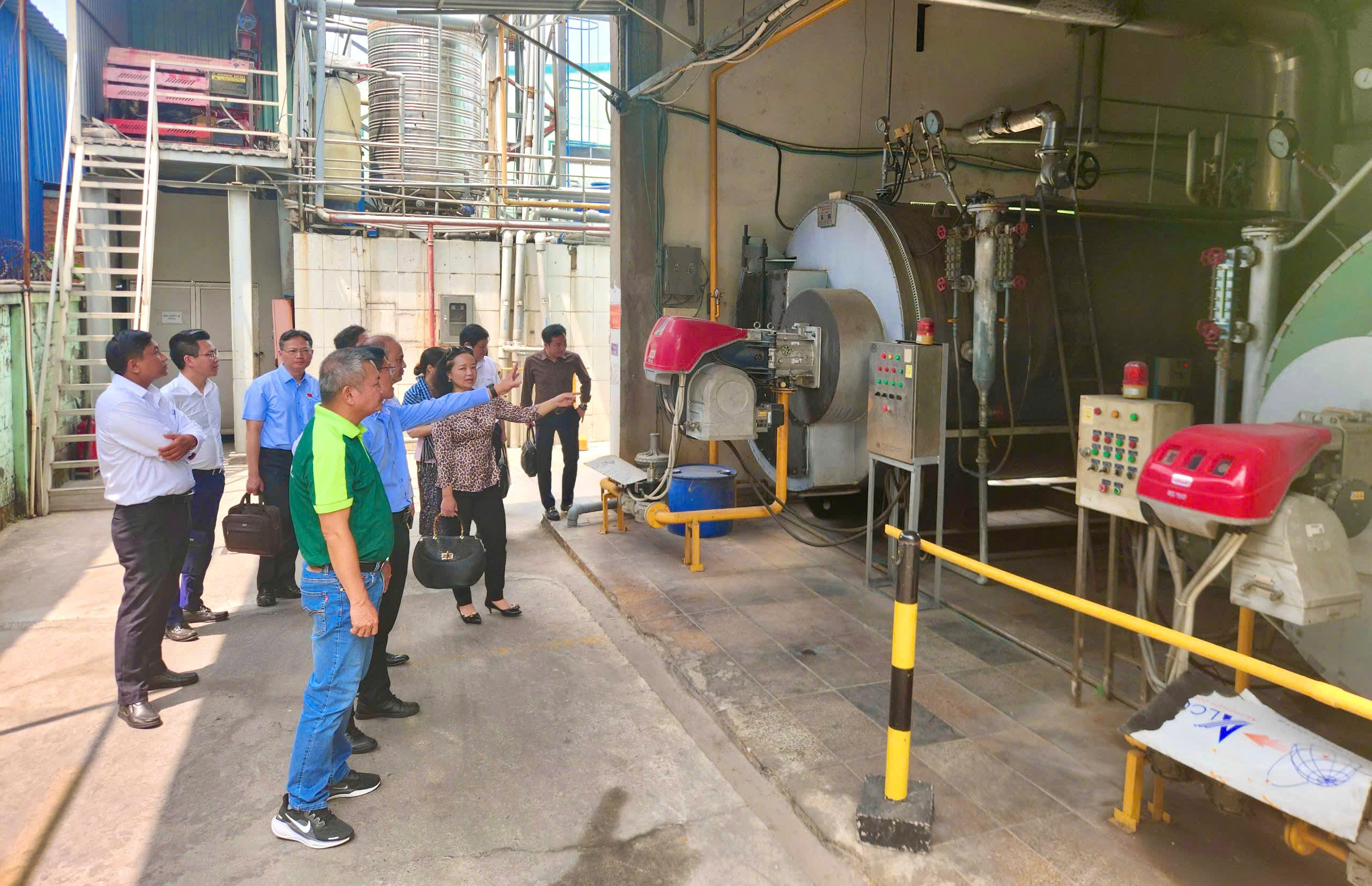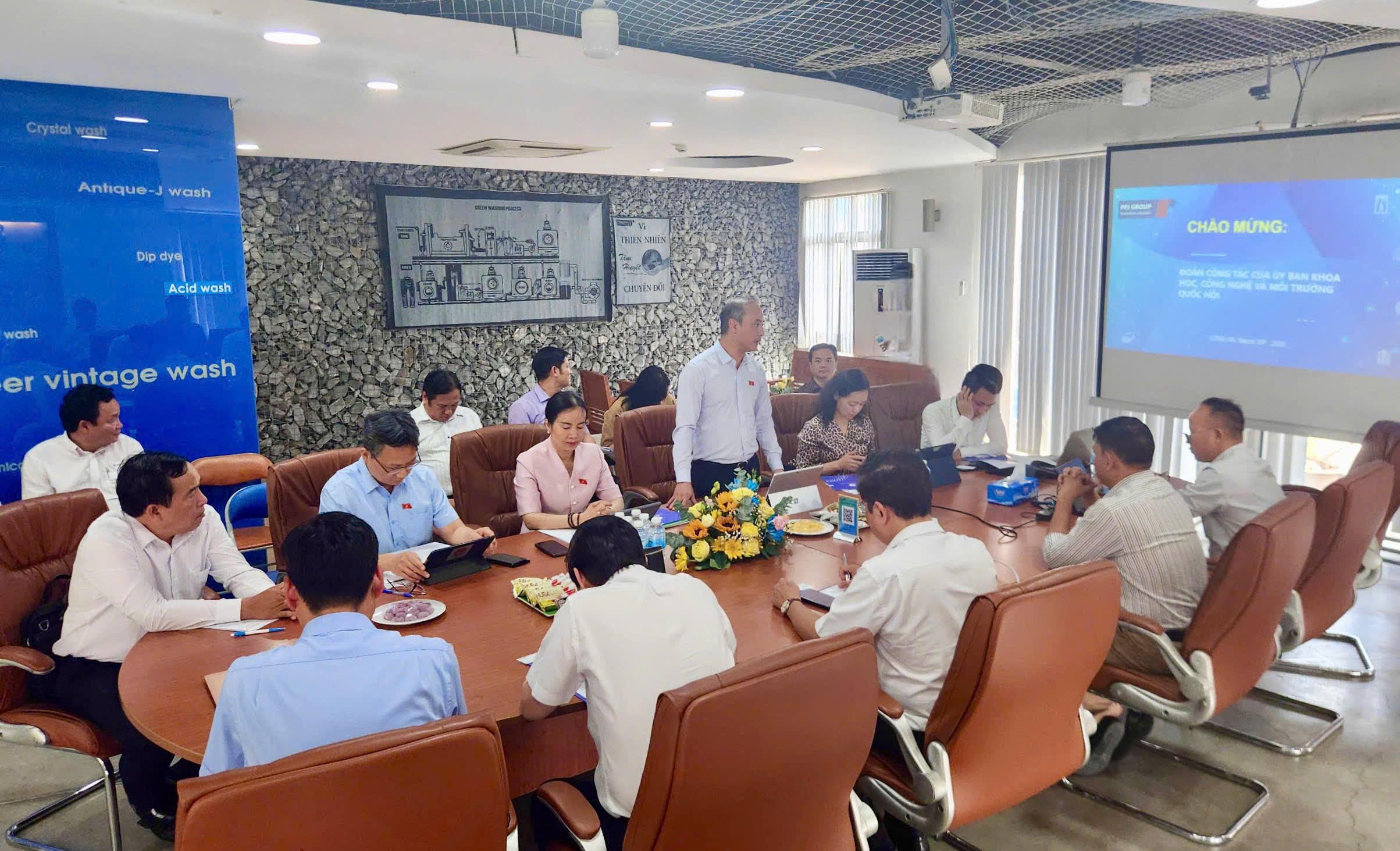The delegation visited several enterprises, received reports, exchanged views, and provided feedback on the implementation of policies and laws related to energy efficiency.
The delegation was led by Mr. Nguyen Phuong Tuan, Vice Chairman of the Committee on Science, Technology, and Environment, along with National Assembly delegates, the Ministry of Industry and Trade, Vietnam Electricity (EVN), Southern Power Corporation, and Ho Chi Minh City Power Corporation.
Survey at Saigon Food Joint Stock Company (SGFs).
At Saigon Food Joint Stock Company (SGFs), the survey revealed that the company’s current energy consumption is 734.3 kWh per ton of product, a 12% reduction compared to the previous report (834.9 kWh/ton).
During the working session, SGFs representatives provided a summary of the company’s energy usage, highlighting key energy-saving initiatives: On May 2021: Installed 1.5 MWp rooftop solar power, saving 20% of electricity costs and reducing 1,187 tons of CO2 emissions; On September 2023: Switched from DO fuel in boilers to CNG (compressed natural gas), cutting operating costs by 8% and reducing greenhouse gas emissions; From 2024: Implemented an energy management system according to ISO 50001-2019 standards.
Besides, SGFs has also implemented various technical improvements: Replacing globe valves in the central refrigeration system, reducing compressor workload; Utilizing excess cooling capacity to set up a cold water production system; Recovering waste heat from drying systems to preheat boiler feed water; Upgrading freezing fans to enhance freezing efficiency.
Delegation at Saigon Food Joint Stock Company (Ho Chi Minh City).
SGFs fully comply with legal regulations on energy efficiency, including regular energy audits and annual training for energy managers.
For future improvements, the company plans to upgrade its refrigeration system, replacing old, low-efficiency compressors with high-efficiency models. The project will require an investment of 4 billion VND, with estimated annual savings of 280 million VND, 135,529 kWh of electricity, and 8.24 tons of CO2 emissions.
In the afternoon, the delegation visited Thanh Chau Investment Joint Stock Company, a textile enterprise committed to sustainable development. During the production process, the company has achieved a 30% reduction in water consumption through equipment optimization, dyeing process improvements, monitoring systems, and water reuse. Since 2022, the factory switched 100% to biomass energy.
The biggest difficulty for enterprises is investing in converting to energy-saving technology.
From 2021, the Company has applied many energy-saving solutions. In 2021, the energy consumption rate was 0.814 kWh/product, by 2024 it will be 0.627 kWh/product (reducing 19% of electricity used/unit of product).
Thanh Chau Factory aims to achieve a wastewater recycling rate of 52% by 2025 and convert at least 15% of energy sources used in production to clean energy/renewable energy. By 2030, reduce CO2 emissions by 42%; by 2029, use 100% green chemicals; by 2030, recycle and use 30% of solid waste, and do not bury industrial waste.
In the coming time, the Company continues to pursue the goal of sustainable development, accordingly, the proposed solutions include: Replacing boiler fuel; installing solar energy; Use renewable energy under DPPA project; build carbon sequestration/carbon reduction projects to issue carbon credits.
The delegation worked at Thanh Chau Investment Joint Stock Company, a member of PPJ Group (Long An Province).
Sharing the difficulties in using energy efficiency and conservation, the representative of Thanh Chau Investment Joint Stock Company said that implementing energy saving in the industrial sector requires large financial resources to invest in technology conversion. Therefore, the biggest difficulty that the enterprise encounters is finance. In addition, the price of energy-saving equipment is still high, and the mechanism for businesses to borrow capital is also an obstacle when implementing energy-saving investment projects.
The delegation acknowledged and recorded the feedback from enterprises to consider in drafting amendments to the Law on Energy Efficiency and Conservation. On March 29, 2025, the delegation will continue the survey in Dong Nai Province.
Innovation, Green Transition, and Industrial Promotion Agency, MOIT











